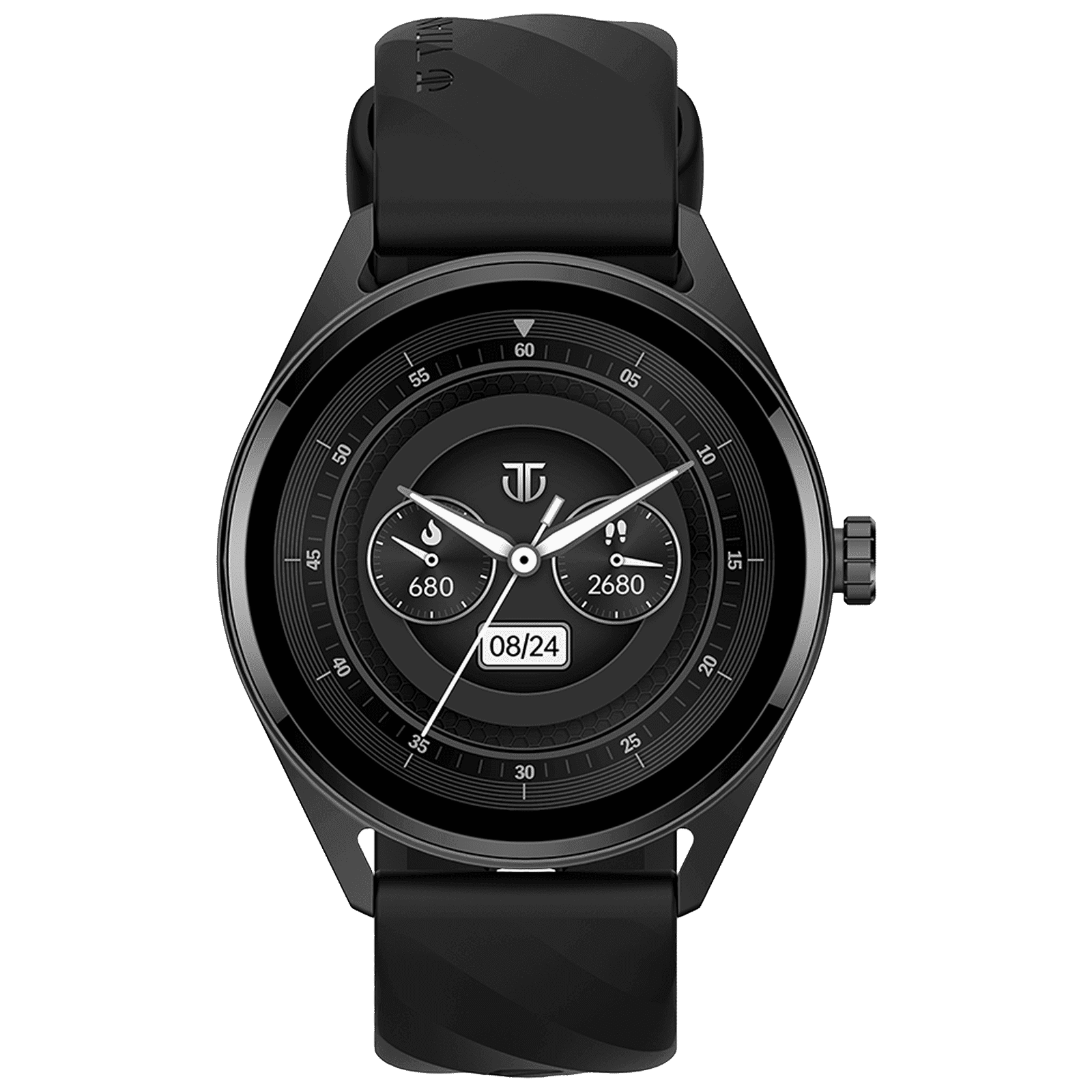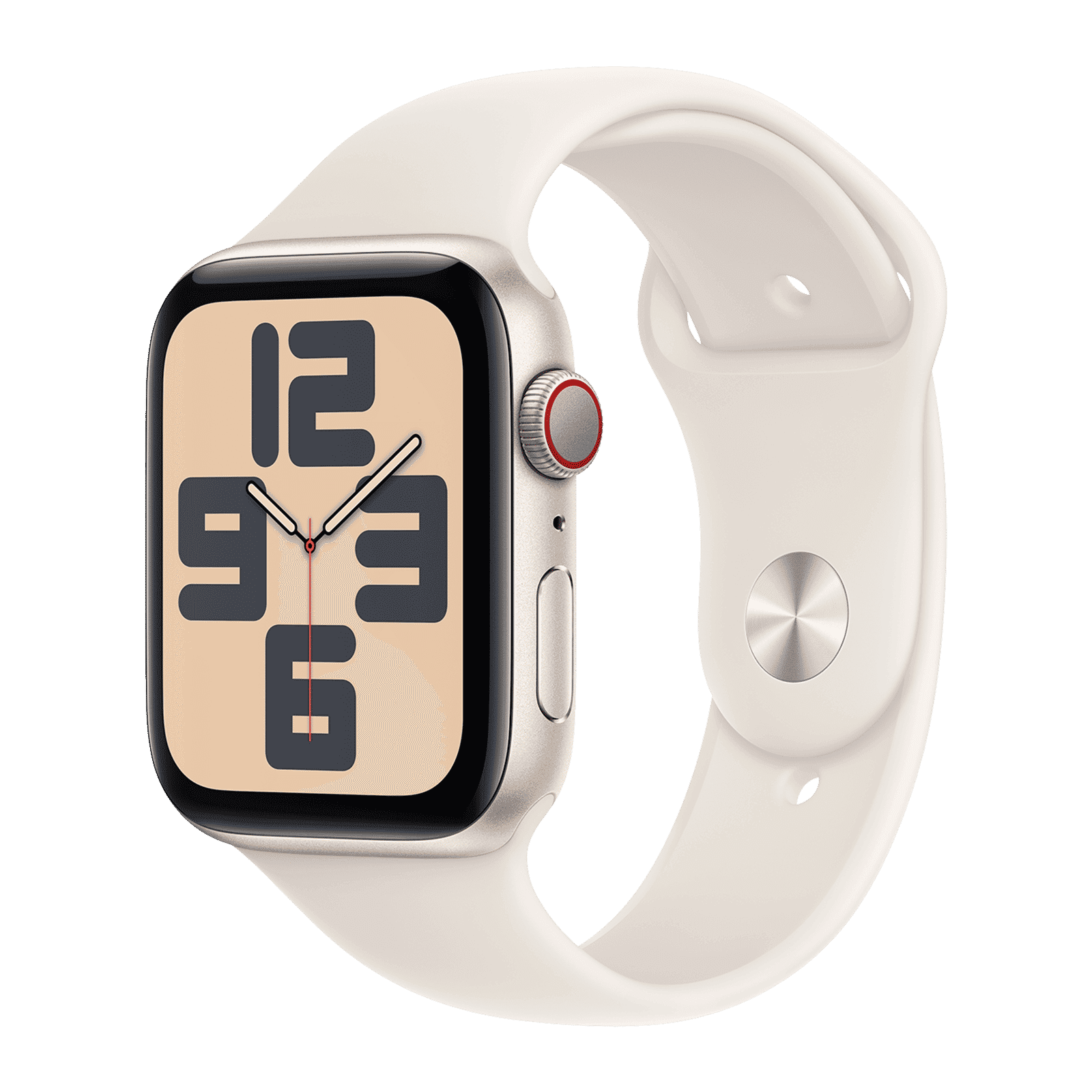%20(Presentation)%20(1600%20x%20600%20px)(29)-4d1bdff1-fada-4640-98c7-d9d7ac4cc449.webp&w=3840&q=75)
Consumer Electronics
•04 min read

Buy TITAN Crest Smartwatch with Bluetooth Calling (36.3mm AMOLED Display, IP68 Water Resistant, Black Strap) online at best prices from Croma. Check product details, reviews & more. Shop now!
Ever wondered what makes your smart watch lcd so vibrant, responsive, and durable? In the world of wearable technology, the display is more than just a window to your data – it is a critical component that elevates your entire experience. As we delve into the nuances of smart watch display technology, you'll learn about different screen types, the materials behind these displays, and innovative advancements that are enhancing both functionality and style.
LCD, or Liquid Crystal Display, is a prevalent technology that transforms electrical signals into visible images. In smart watches, this technology is essential for delivering high resolution images, ensuring that the text and icons are crisp and clear. Compared to alternatives like AMOLED, a lcd screen for smartwatch offers a balanced mix of durability and clarity, making it a preferred choice for many users.
Smartwatch lcd panels are known for their high resolution, excellent touch responsiveness, and energy efficiency. These features combine to offer a screen that is not only beautiful but functional in any lighting situation. Many popular devices have embraced these qualities, proving that a well-engineered lcd screen for smartwatch can deliver performance without compromise.
The debate between lcd and AMOLED screens is ongoing, with each technology offering distinct advantages. LCD screens typically provide impressive brightness and clarity, making them highly effective in well-lit conditions. They are also known for their durability, an essential factor when durability in smartwatch screens is a priority. While AMOLED screens deliver deeper blacks and vibrant colours, the sturdy and cost-effective nature of lcd displays make them attractive for many everyday users.
Different types of lcd panels, such as IPS LCD and TFT LCD, serve various user needs. IPS LCD panels offer wider viewing angles and improved colour reproduction, ideal for those who value pristine visuals. On the other hand, TFT LCD screens are generally more affordable while still delivering good performance. These variations in smartwatch screen types ensure that there is a solution tailored to differing lifestyles and budgets.

Buy noise SnapOn Silicone Magnetic Loop for Smartwatch (22mm) (Quick Release Pins, Orange) online at best prices from Croma. Check product details, reviews & more. Shop now!
The materials used in constructing these displays play a significant role in their longevity and performance. Common materials such as high-quality glass and durable plastics are used to guard the display against everyday wear and tear. Some premium models even incorporate sapphire crystal, which offers exceptional scratch resistance. This material not only enhances the durability of the smartwatch touch display but also contributes to maintaining vibrant visuals over time.
Innovation drives the evolution of smartwatch screen technology. Recent advancements include flexible lcd screens and ultra-thin panels that provide a sleeker design and enhanced user interaction. These improvements have made it possible for users to enjoy a more natural and uninterrupted experience, whether checking notifications or engaging with interactive features. With each technological leap, users reap the benefits, such as improved battery life and a more immersive interface.
A high resolution smartwatch lcd is defined by several metrics: resolution, brightness, and colour depth. Superior viewing angles, combined with robust outdoor visibility, ensure that your smart watch display remains clear, whether indoors or under the sun. Manufacturers continue to push the boundaries of display quality, carefully balancing these factors to create screens that are both beautiful and dependable.
Selecting the ideal smartwatch display requires considering your unique needs. Think about your daily routine—whether you spend much time outdoors, or need a watch that pairs durability with precise touch responsiveness. For many, a high resolution smartwatch lcd offers the perfect combination of performance and price. Evaluating features such as the touchscreen's responsiveness and the longevity of the display material can guide you in making informed decisions that align with your lifestyle and budget.
The market for smart watch display quality is witnessing significant evolution with a strong focus on high-resolution panels and touch-enabled functionality. As consumer expectations rise, manufacturers are developing displays that not only enhance interactivity but also ensure the watches remain robust and reliable, even in challenging conditions. The integration of features like express delivery for orders placed before 6pm, as seen with platforms like Tata Neu, augments the consumer experience, reflecting an industry committed to both innovation and excellence.
The future of smartwatch screens is bright, with promising innovations such as foldable or curved displays on the horizon. As advancements in energy efficiency continue, future displays are anticipated to offer an even more dynamic and user-friendly experience. When selecting a smartwatch, consider that evolving display technology will provide ongoing improvements in functionality, ensuring that your investment remains both up-to-date and enduring.

Buy Apple Watch SE GPS+LTE with Starlight Sport Band - M/L (44mm Retina LTPO OLED Display, Starlight Aluminium Case) online at best prices from Croma. Check product details, reviews & more. Shop now!
Insight Corner: "Did You Know?"
The durability of a smartwatch screen often depends on its material composition. Sapphire crystal screens, though more expensive, provide exceptional scratch resistance, making them ideal for rugged outdoor use.
TFT screens are more affordable but have narrower viewing angles, while IPS screens offer better colour accuracy and wider angles, making them ideal for premium smartwatches.
LCD screens typically consume slightly more power due to the backlight, but advancements in energy-efficient designs have minimised this difference.
Yes, most lcd screens can be replaced or repaired, with the cost and feasibility depending on the specific smartwatch model and the extent of damage.
Resolutions like 240x280 or higher are considered standard for high-quality lcd panels, offering sharp visuals and vibrant colours.
Flexible lcd screens are emerging as a technology trend, with some brands beginning to introduce foldable or curved designs for enhanced functionality.
Smartwatch lcd displays represent a cornerstone of wearable technology, merging durability, performance, and value in one seamless package. By understanding the intricacies of different screen types, materials, and recent advancements, consumers can confidently select a smartwatch that perfectly fits their lifestyle. As the technology continues to improve, platforms like Tata Neu ensure that shopping remains smart and rewarding through exclusive NeuCoins rewards and benefits. This blend of technological insight and rewarding customer experience reflects Tata Neu's commitment to revolutionising online shopping while placing customer aspirations at the forefront.